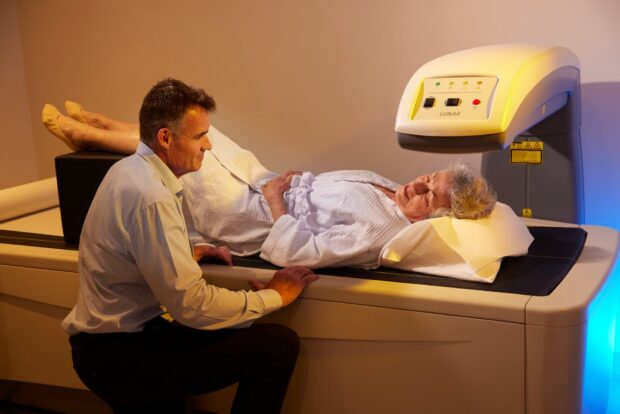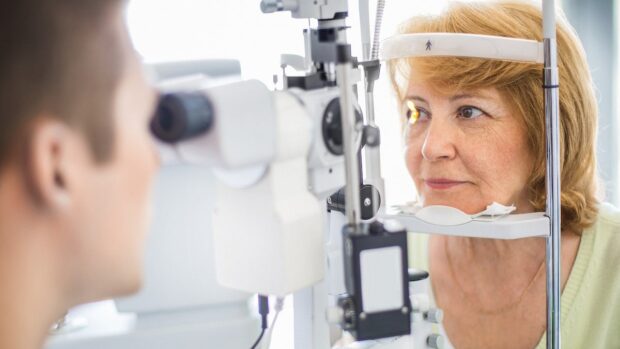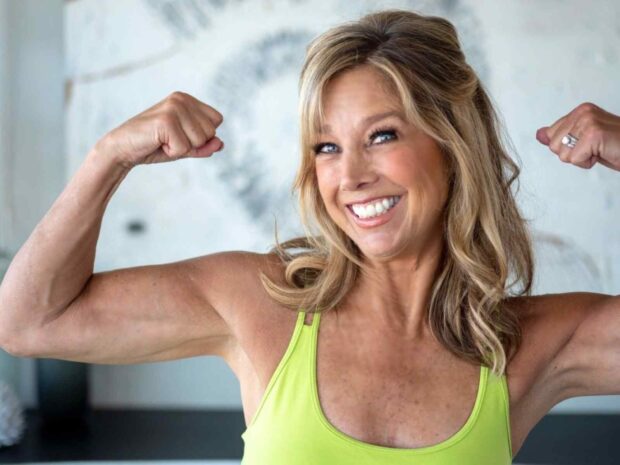Entering your 50s is a pivotal moment. It is time for many to begin focusing on their health and wellness. This decade brings changes that can impact your health well into the future.
Prioritizing your physical, mental, and emotional health is not selfish but smart! It is essential to prioritize your needs now and take care of your health to live your best life moving forward.
Key Points:
- Routine checkups become critical in your 50s to prevent major issues.
- Heart health and blood pressure must be tracked frequently.
- Diabetes risk increases, so blood sugar and A1C testing are necessary.
- Bone density loss needs monitoring to avoid fractures.
- Vision and hearing changes can go unnoticed and must be tested.
- A balanced diet and consistent movement support long-term vitality.
- Hydration aids everything from skin health to metabolism.
Preventative Healthcare and Screenings

Regular health screenings and checkups are essential well before you need to search for skilled nursing services. These screening services play a critical role in disease prevention. You should consider the following screenings once you turn 50 and beyond.
Heart Health
You must monitor your blood pressure, cholesterol, and heart disease risk factors. High blood pressure becomes more common after 50 because of vascular changes, including artery stiffening. Checking your blood pressure and cholesterol can ensure your heart is in good shape.
You also need to check triglyceride levels and body mass index (BMI), which contribute to overall cardiovascular risk.
Even mild shortness of breath or chest tightness during everyday activity can signal early heart strain.
If you have a family history of heart attacks or stroke, request a coronary calcium scan or advanced lipid testing.
Do not rely only on how you feel—silent symptoms are common.
Diabetes Screening
Diabetes is a rising disease and is more likely to occur after middle age. Unfortunately, many people do not know they have high blood sugar until it gets out of control and starts causing symptoms. You should check your blood sugar levels periodically. Your doctor should also check your A1C levels once a year.
Fasting glucose tests and oral glucose tolerance tests may also help clarify risk before symptoms appear.
You should also track waist circumference, as abdominal fat increases insulin resistance.
Early signs include fatigue after meals, blurry vision, or frequent urination—do not overlook these signals.
Ask your doctor to calculate your 10-year diabetes risk score during annual exams.
Bone Density Testing

Osteoporosis is a risk after your 50s. Reduced bone density can lead to broken bones and mobility issues. Bone health assessments are essential to protect against bone loss as you age.
DEXA scans can measure your current bone mass and detect early osteopenia.
You should also evaluate your calcium intake, physical activity levels, and any family history of fractures.
If you’ve lost height or have chronic back pain, you may already be experiencing spinal bone loss.
Ask your doctor about bisphosphonate medications or hormone therapies if risk is high.
Vision and Hearing Exams

You also need to have your hearing and vision checked after age 50. Hearing changes are more common after middle age, and you could be experiencing loss and not realize it immediately. Keeping a check on your vision and hearing can protect these vital senses well into the future.
Early detection of cataracts, glaucoma, or macular degeneration can prevent long-term vision damage.
You should also schedule a dilated eye exam every two years, especially if you have diabetes or high blood pressure.
For hearing, audiograms can catch loss even before it affects conversation clarity.
Do not dismiss occasional ringing in your ears or asking others to repeat themselves—those are signs to get checked.
Nutrition and Fitness

Your longevity depends on the foods you eat and your activity level. A balanced diet and exercise program becomes essential after 50. Consider the following tips to help you stay on top of your health:
- Healthy eating: Focus on eating a wide array of fresh fruits, vegetables, and lean protein sources. Limit processed foods and empty-calorie sugary drinks, such as soda.
- Calcium and Vitamin D: Eating dark, leafy green vegetables improves bone health. Get a little sun daily to ensure your vitamin D levels remain at the correct numbers. Ask your doctor about supplements if your calcium or vitamin D levels are lower. Your vitamin D and calcium levels should be checked as a part of your health screenings.
- Exercise: Moving your body is critical for keeping your bones and muscles strong so you do not develop mobility issues as you age. Strength training, cardiovascular, and flexibility exercises are crucial. Find activities you love and do them!
- Hydration: Staying properly hydrated is critical for kidney function and body performance. Drinking plenty of water hydrates your skin, supports digestion, and improves metabolism.
Mental Health Checks Matter

Your physical health is only one part of the equation. After 50, emotional and mental well-being often take a hit due to stress, life transitions, or isolation. Cognitive issues and memory lapses can also begin at this stage.
You need to prioritize mental balance just as much as physical health. Anxiety and depression become more common after 50, especially in those dealing with chronic illness or lifestyle shifts. A yearly mental health check with your provider can catch early signs of mood or memory decline.
Common mental health red flags:
- Persistent sadness or lack of motivation
- Difficulty concentrating or remembering names
- Irritability, mood swings, or frequent worry
Do not dismiss those signals. Early support can prevent long-term decline and give you the tools to stay mentally sharp and emotionally stable.
Stress and Sleep Strategies

Poor sleep and constant stress damage your heart, immune system, and metabolism. Once you hit 50, stress recovery slows down, and bad sleep habits hit harder. You need a new approach.
Follow these sleep and stress tips:
- Keep a consistent bedtime and wake time.
- Avoid screens for at least one hour before sleep.
- Practice deep breathing or meditation for five minutes a day.
- Use a sleep mask or white noise machine for uninterrupted rest.
- Limit caffeine after lunch.
Better rest helps your body repair and your mind reset. That’s non-negotiable in your 50s.
Build a Care Team
You are not meant to manage health alone. Build a circle of support that includes:
- A primary care physician
- A registered dietitian or nutrition coach
- A physical therapist or movement expert
- A mental health provider
- Trusted family or friend advocates
This team ensures no issue slips through. You can catch problems early and act with confidence. Surrounding yourself with proactive care makes aging smoother and less stressful.
Taking Care of Yourself In Your 50s and Beyond
Now is the time to begin focusing on your health and well-being. The information above is ideal to help you get started. The more you take care of yourself now, the better health you will experience with age. Routine medical care can help prevent many health issues and ensure you can live your best life, even if you need nursing care in the future.
 Jewel Beat
Jewel Beat

